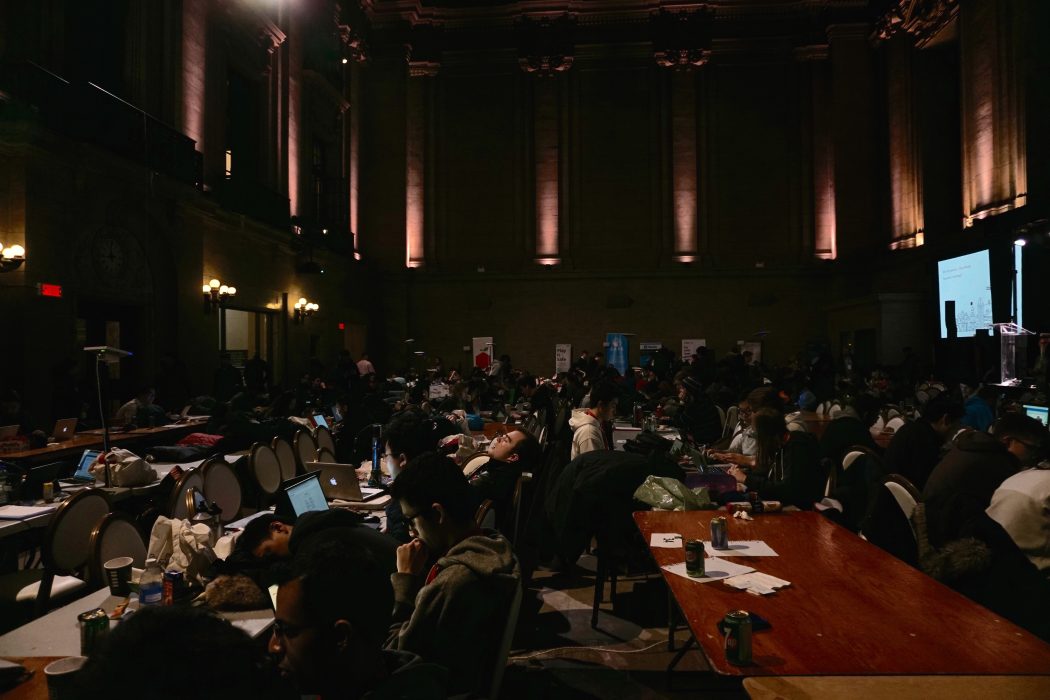On the weekend of February 2-3, McHacks hosted their 6th annual Hackathon in the St. James Theatre in Old Montreal. Over 500 students attended this 24-hour coding event and worked in teams to solve problems and create unique projects.
High school, CEGEP, and university students were welcome to apply, including those under 18 (with parental consent). The event even welcomed applications from students who did not yet know how to code. Admission was entirely free, with buses being sent to nearby cities to collect participants and reimbursements offered on a case-by-case basis.
The weekend schedule included workshops, therapy dogs, competitions, and lectures among other things. Meals and sleeping areas were provided, and “mentors” were made available around the clock to help answer any questions. The event had a wide variety of sponsors including Interac, Telus, Google, and McGill’s Arts Undergraduate Society (AUS).
According to Elisa Branson, McHacks’ Communications Lead, “McHacks 6 was an enormous success this year featuring over 580 hackers from Quebec, Ontario, and the North Eastern US. Notably, our diversity was better than ever with over 30% of hackers identifying as female or non-binary. Over 90 hacks were submitted in pursuit of challenges from our 25+ sponsors.”
our diversity was better than ever with over 30% of hackers identifying as female or non-binary
In an interview with one of the participating teams, first-year engineering student Miasya Bulger explained their project to The Bull & Bear, stating: “We created a wearable piece of technology for people with vision loss to help them navigate the contents around them.”
Her teammate, Kattly Li, elaborated on who they were coding for, saying that “often times people report getting injuries because they don’t sense something coming towards them… they always use their cane or have some other method of detecting it that doesn’t always capture the full range of the area in front of them. We were hoping with our ultrasonic sensors to remediate that.”
Their team was comprised of two Engineering students, a Computer Science student, and an Arts student. Team member Gregory Pope explained that they signed up for an event to use code to build their online portfolio and to work with hardware, which first-year students don’t often get to experiment with.
Bulger detailed the dynamics of participating in a Hackathon, saying: “We’d definitely do it again. I found that my perception of what a Hackathon would be like was completely different from the reality. I thought it would be a lot more stressful, a lot more competitive, but it’s actually a really open, welcoming environment.”


